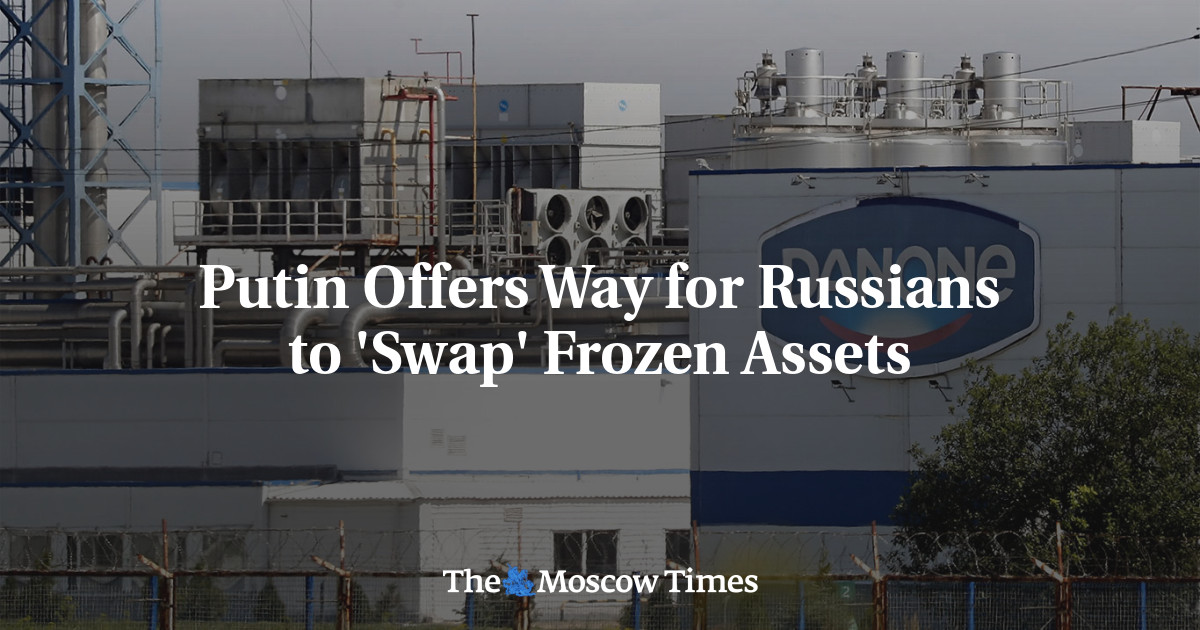
President Vladimir Putin signed a decree on Wednesday offering a way for Russian investors to “swap” their frozen assets abroad with the frozen assets of foreign companies in Russia.
Since Moscow invaded Ukraine in late February last year, Western countries have introduced a barrage of sanctions against Russia, blocking its banks from making international payments and freezing Russian assets abroad.
According to the Kremlin, more than $16 billion worth of foreign investments belonging to Russian citizens are now stuck abroad.
In response, Russia locked some assets belonging to foreign investors and companies in its country in so-called “Type-C” accounts.
According to the decree, Russian residents will be able to exchange their blocked assets abroad up to a value of 100,000 rubles (around $1,000) with funds from these accounts using a voluntary mechanism.
The owner of the Type-C account, which is nominally a foreign company, will then have the option of receiving the foreign share previously owned by the Russian investor abroad.
But there is no guarantee that foreign clearing houses Euroclear or Clearstream, which handle the exchange of shares, will cooperate.
Dozens of Western companies have pulled out of Russia or sold their assets there to avoid falling foul of sanctions.
The Kremlin has made it difficult for foreign companies to make money on their sales, and in some cases has moved to take control of companies outright.
In July, Russia seized the Russian subsidiaries of French yogurt maker Danone and beer company Carlsberg, months after doing the same to Germany’s Uniper and Finland’s Fortum.